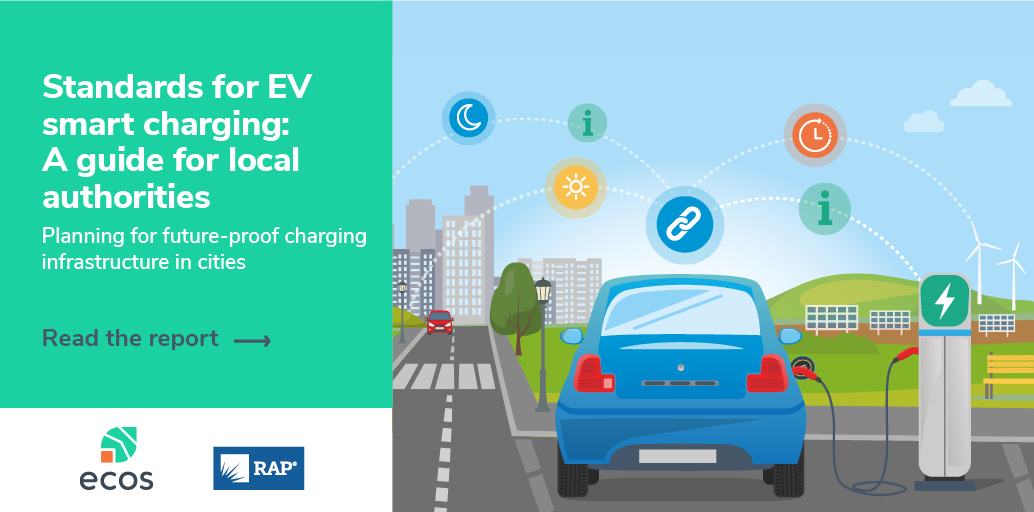Read the new ECOS & RAP briefing: Standards for EV smart charging – A guide for local authorities
Our guide aims to assist those working on public charging infrastructure at a local level. It is designed to help local authorities understand the main benefits of smart charging, the role standards play in achieving these benefits and how the right procurement policies can help deploy charging infrastructure built to last.

The electrification of road transport is having a profound impact on the energy system – and our cities. We are replacing a system based on polluting fossil fuels with one where cars no longer produce tailpipe emissions and can function as mobile batteries capable of charging virtually anywhere.
Creating a durable, adaptable charging network for electric vehicles requires forward-thinking strategies, including smart charging, where data is shared between the charging infrastructure and the power system.
Cities are essential actors in making smart charging happen at a large scale. Many local administrations are working to change existing mobility patterns and reduce private car ownership by improving public transport and shared mobility. Deploying sufficient public charging infrastructure for transport electrification can foster change. It is cities that procure or issue permits for public charging infrastructure, and therefore cities hold the key to unlocking the benefits of smart charging. When launching public procurements or permitting schemes, they set requirements for the infrastructure of the near future.
But, how can local authorities deploy a future-proof, robust smart charging network? To launch the right public procurements, they need to be aware of developments in regulation and technical standards. Ensuring that cities can take these standardisation developments into account when procuring charging infrastructure is the purpose of this report.

 By
By 
